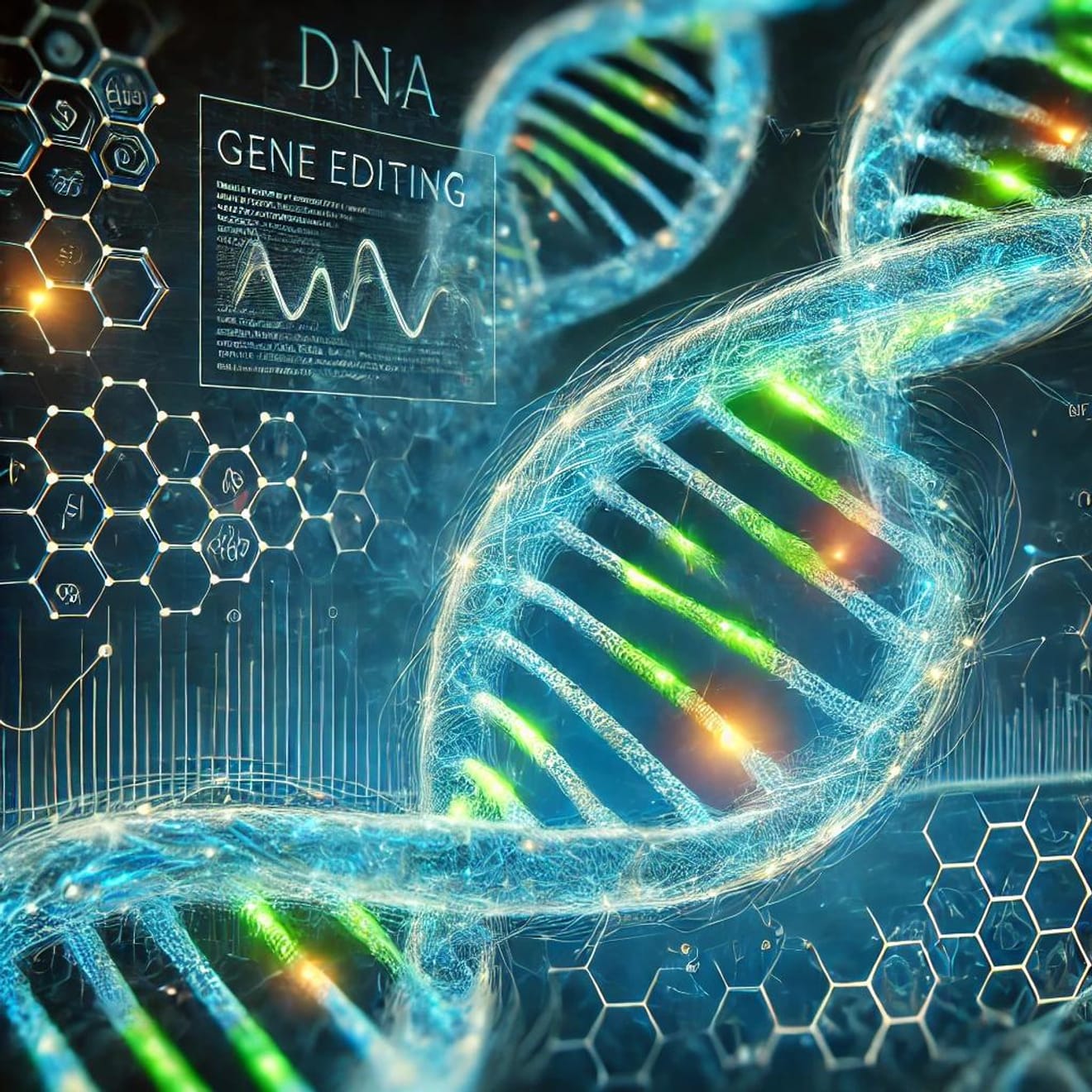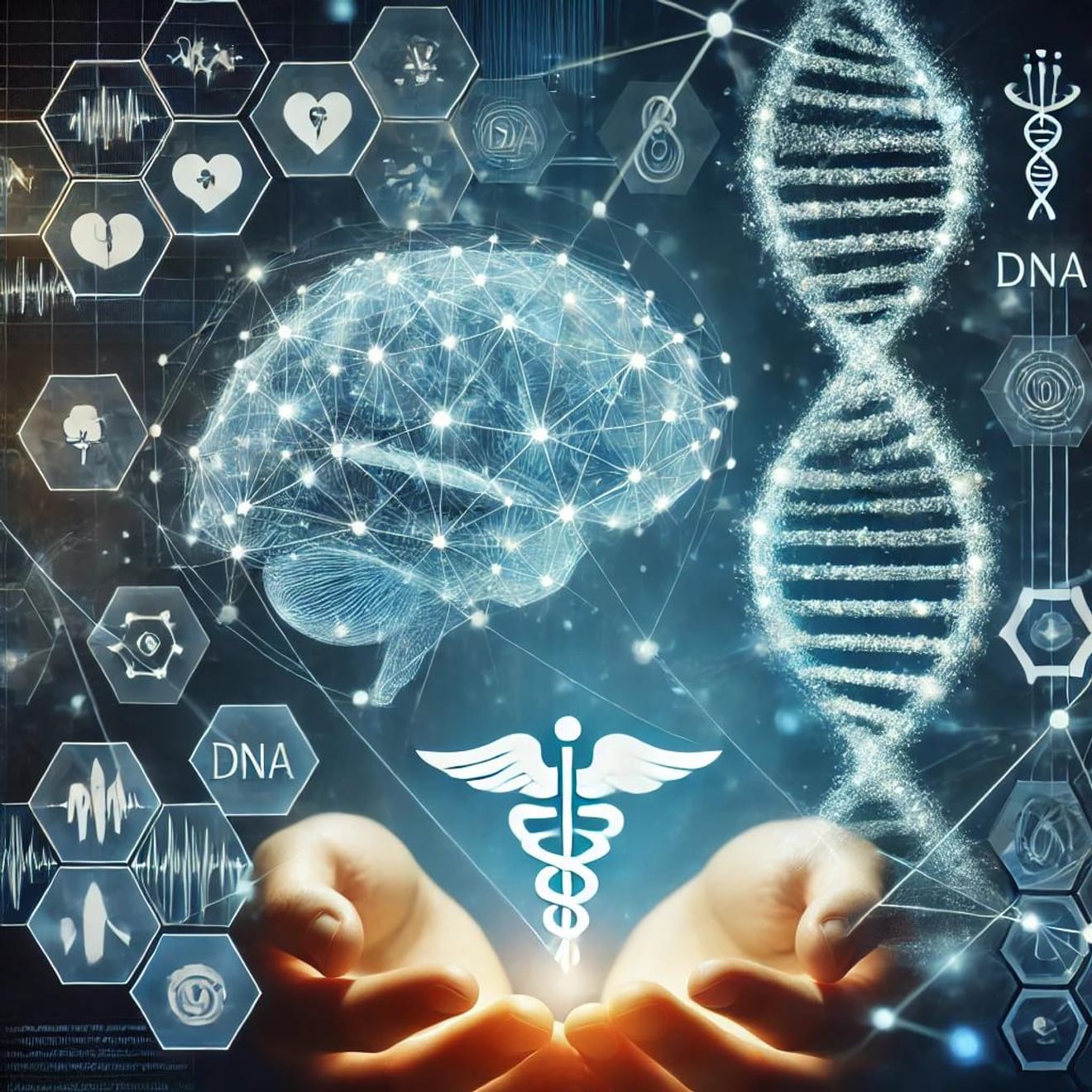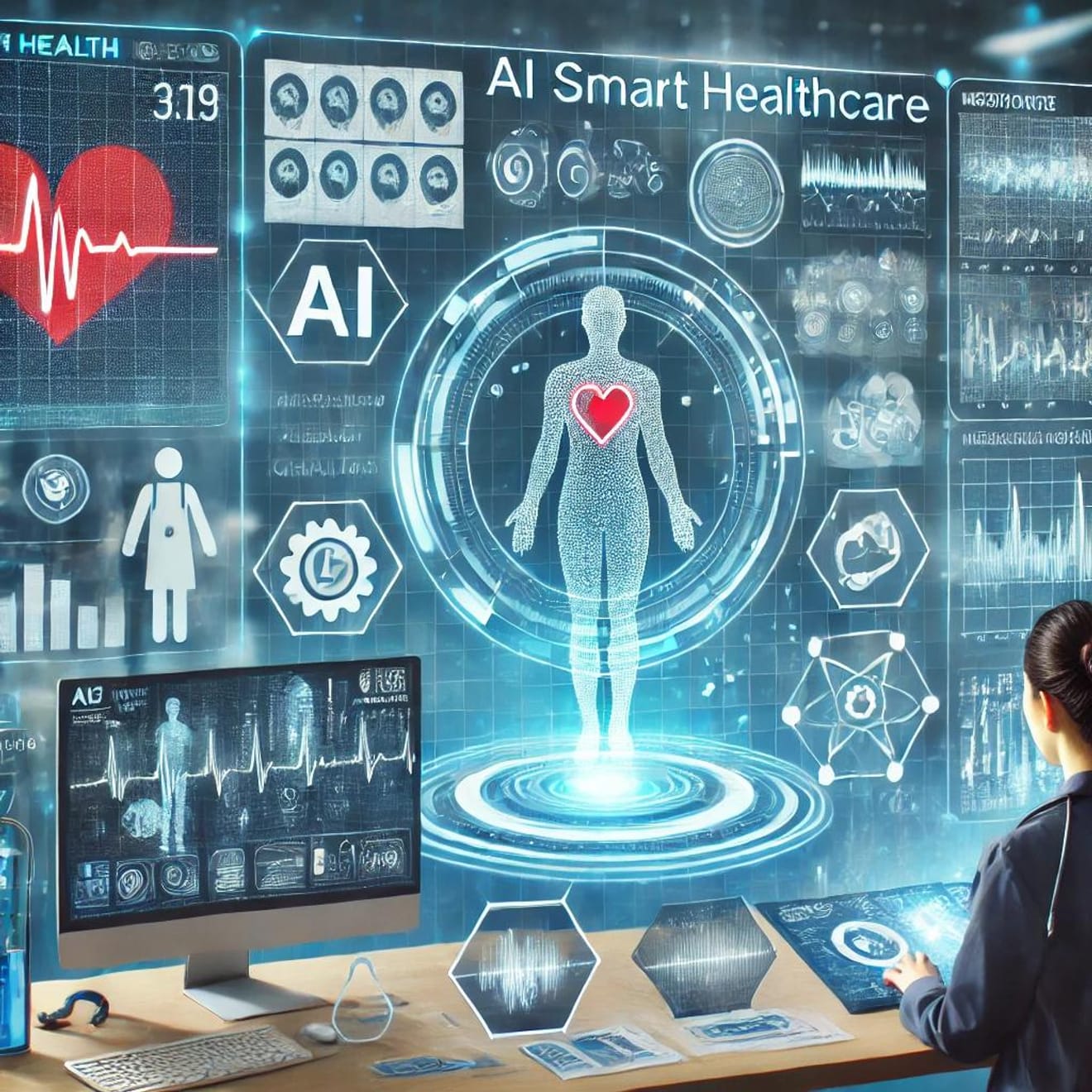In 2025, we are entering a new era of healthcare. The convergence of biotechnology and artificial intelligence (AI) is no longer a futuristic concept but a present reality. Previously, healthcare primarily involved exercise, diet, and doctor's visits. However, advancements in biotechnology and AI have revolutionized how we manage our health, with the potential to dramatically improve our quality of life.

1. Advancements in Biotechnology
Biotechnology, based on life sciences, plays a crucial role in addressing various health-related issues. In recent years, it has achieved remarkable progress in areas such as gene analysis, cell therapy, and precision medicine. The development of gene-editing technologies like CRISPR has opened new possibilities for preventing and treating specific diseases. Gene analysis has enabled personalized healthcare, ushering in an era of individualized health management.
By 2025, methods for real-time monitoring of individual health status and preemptive risk prevention using genetic information and biomarkers will become more practical. This progress is shifting healthcare towards a preventative approach, extending beyond mere treatment.
2. Integration of AI and Machine Learning
Artificial intelligence (AI) and machine learning (ML) technologies, combined with biotechnology, are revolutionizing healthcare approaches. AI is a powerful tool for analyzing large amounts of health data, identifying disease patterns, and performing predictive analytics. AI-based health prediction systems comprehensively analyze an individual's genetic information, lifestyle, and environmental factors to predict the likelihood of specific diseases and offer personalized prevention plans.
For example, AI can analyze data collected in real-time through smartwatches or wearable devices to quickly detect signs of health abnormalities. These systems not only predict diseases but also provide real-time feedback and personalized health management plans, encouraging proactive prevention.

3. The Convergence of Biotechnology and AI
The convergence of biotechnology and AI is not merely a technological combination but presents a new paradigm in healthcare. Advances in precision medicine enable personalized treatment tailored to an individual's genetic information, environment, and lifestyle, while AI analyzes this data in real-time to suggest the most effective treatment methods. This moves away from traditional, generalized treatments toward personalized health management.
These technologies can be applied to real life through digital therapeutics, smart healthcare platforms, and wearable devices. For instance, a smart hospital system combining AI and biotechnology can monitor a patient's health status in real-time, automatically develop treatment plans, and manage the patient's condition through remote consultations. The combination of biotechnology and AI enables real-time data analysis, personalized prevention and treatment, and efficient disease management, leading the future of healthcare.
4. The Future of Healthcare
In 2025, the convergence of biotechnology and AI is causing a fundamental paradigm shift in healthcare, going beyond simply improving current methods. It allows for accurate and personalized prevention and treatment, ushering in an era where precise predictions enable proactive disease prevention and health maintenance.
AI and biotechnology are opening up new possibilities for how we manage our health and how much longer we can live healthy lives. As these technologies advance, we will gain opportunities to live healthier and more sustainable lives.

The 2025 healthcare revolution, driven by the convergence of biotechnology and AI, enables accurate, efficient, and preventative health management. Health is no longer simply about treating illness, but about managing it through technology and science. We will delve deeper into the various technologies involved, exploring how our health is changing and how we can realize its potential.
Comments0